MusicRadar Verdict
The title 'Fab4' can only refer to the Beatles and Ringo, and Ludwig has every right to invoke that illustrious connection. Yet this kit is a mix of old and new, which doesn't quite click. Why the '70s-style snare? Why 16 lugs when the Accent Elite kick already has the requisite 20? Overall, the kit sounds good, but it's expensive for what it is.
Pros
- +
22"x14" bass drum and rounded bearing edges take you right back to the '60s.
Cons
- -
Rather expensive and not 'fab' when it comes to several details.
MusicRadar's got your back
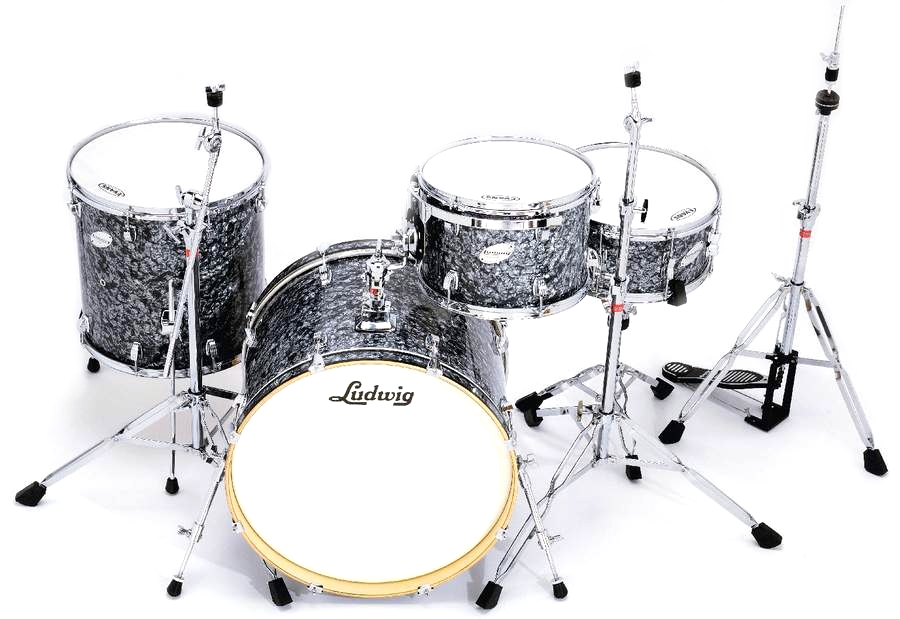
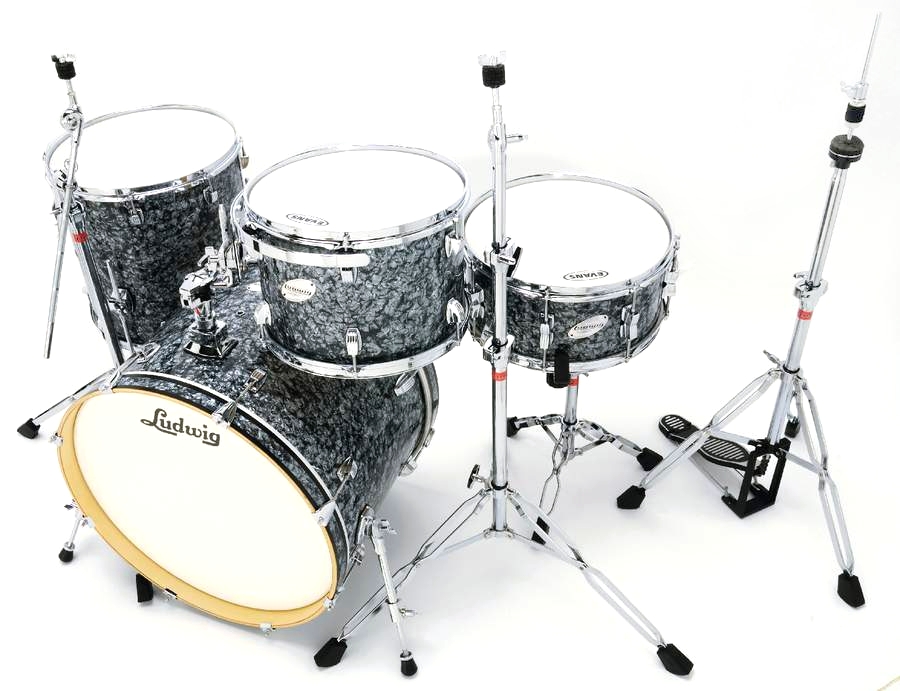
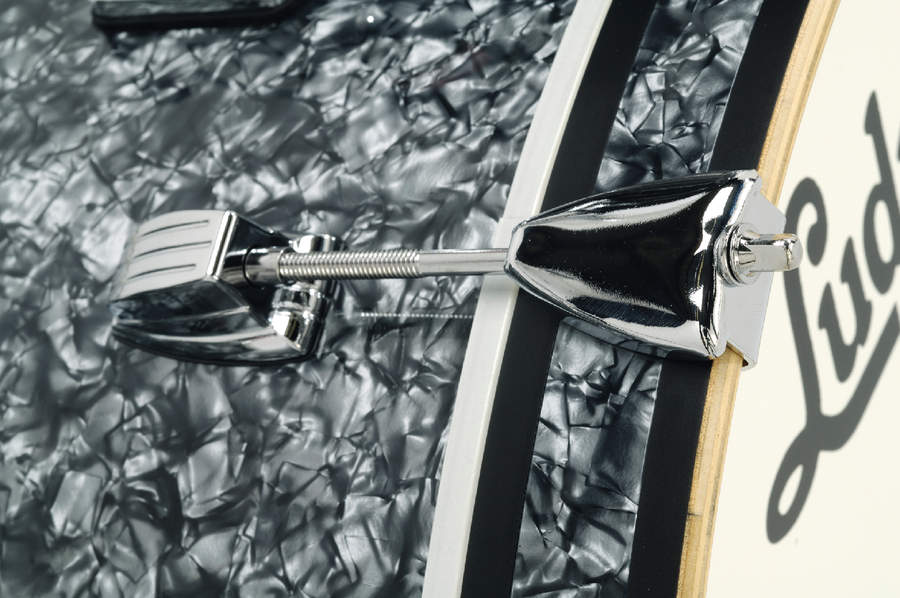
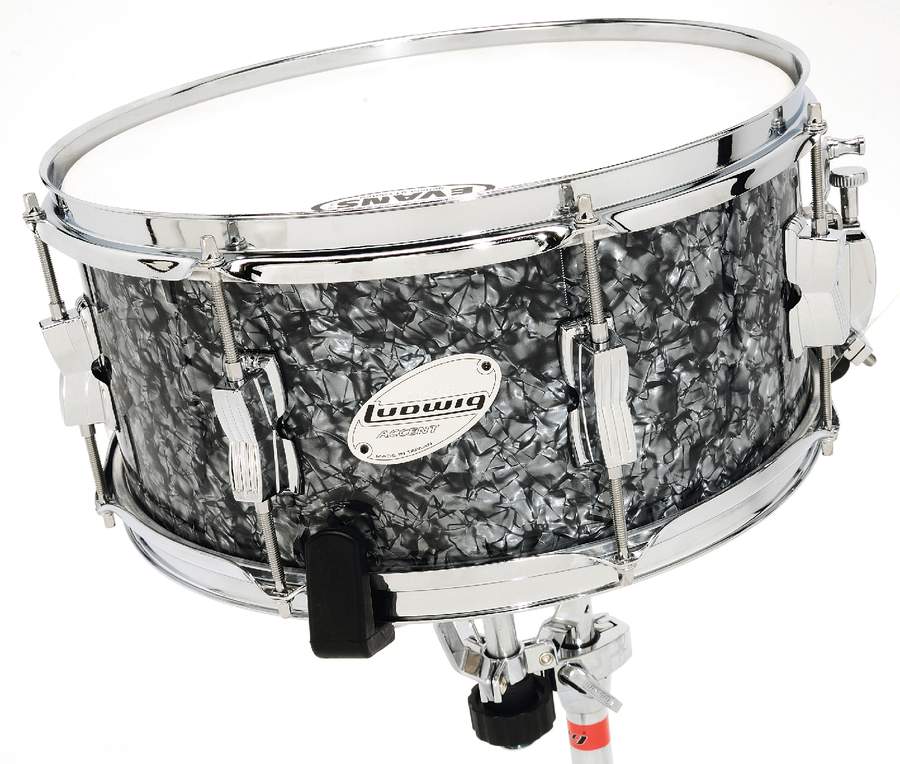
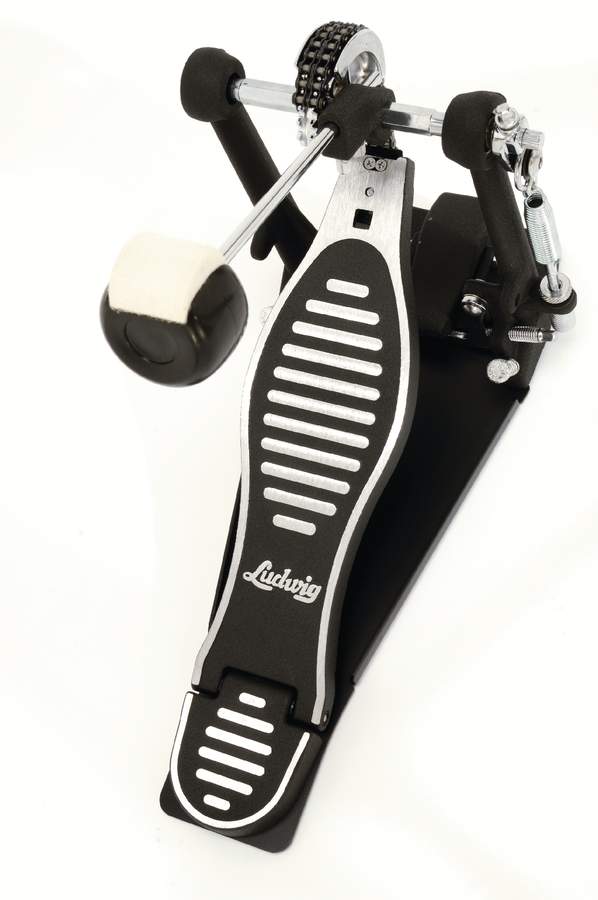
The Fab4 is a special edition of Ludwig´s budget Accent series, which seeks to cash in on - sorry, celebrate - the fact that Ringo Starr played a four-piece Ludwig back in his Beatles days. Ludwig has already had a fair success with its more up-market version of Ringo´s kit, the classic four-ply maple, and this is a considerably cheaper alternative.
It is, however, by Accent standards, not that cheap at all. In fact it´s 50 percent dearer than the best of the normal Accent range. There are several reasons for this, the major one being that this kit is manufactured in Taiwan whereas the normal Accent series is knocked out in mainland China. Ludwig´s Chinese-made Accent CS Custom Elite kit has a lacquered glitter finish that would grace a kit twice the price - and it had 100 percent birch shells, all for a suggested retail of £850.
Now the Fab4 version has a wrap finish and eight-ply basswood-Philippines mahogany shells. Surely that´s a step down? Active Music´s Lee Worsley valiantly argues Ludwig´s case by claiming: the standard of manufacture in Taiwan is higher than in China, more on a par with Ludwig´s American-made products.
Although you´d normally think an all-birch shell is better than a basswood-Philippines mahogany shell, in fact the quality of the Taiwanese timber and finish is more consistent than the Chinese birch. The same applies to the hardware. Lee reckons the Taiwanese metalwork is superior to the Chinese.
Finally, the actual vintage wraps are expensive. The black diamond pearl of the review kit looks authentic, and anyone who´s tried to buy deep pearls and glitter wraps will know they´re not cheap.
Sparkling Pearls
There are three other wraps on offer, among the most popular finishes from the ‘60s: White Marine Pearl, Silver Sparkle and Black Oyster Pearl. Sadly, the latter is not exactly the same as Ringo´s ‘60s wrap, but that´s what is available today.
Want all the hottest music and gear news, reviews, deals, features and more, direct to your inbox? Sign up here.
Moving on to the actual set-up, true to the ‘60s there is a 16”x16” floor tom and a 13”x9” rack tom mounted on a 22”x14” bass drum. The shallow 14” kick is certainly authentic but the snare is a 14”x6 1/2”. Ringo always used a 14”x5”.
According to Lee again, Ludwig is just responding to the current market - they sell more 61/2”deep snares than 5” models. The snare has strange bridge versions of the double-ended classic lug. This accords with today´s quest for minimal shell contact, but we can´t help thinking the 14”x5” that accompanied the Accent Elite was more like Ringo´s than this ‘70s-style model.
Cool White Logo
In another bow to the ‘60s, the bearing edges have been slightly rounded off. Coupled with the mahogany-basswood shells this certainly warms the sound and gives a broader, less edgy tone. The inner plies are laid vertically, which aids projection. Additionally, Ludwig has fitted quality Evans batter heads, ensuring a good sound, more flexibility and easy tuning.
But, if you run your fingers round the bearing edges you may get a splinter for your trouble. The edges are flat enough, but there are a few little feathers of wood here and there and tiny pit marks.
The tom and snare batters are whitecoated Evans G1s, while the bass drum has a clear Evans EQ4 batter. Appropriately, there´s a cool white Ludwig logo head on the front.
The relatively shallow bass drum responds quickly and there´s none of the muddiness of deep kicks. It really thumps and, if anything, the shallower depth intensifies the note - it´s certainly more immediate. As for the toms, the 13” is fat with a hint of that blimpiness that characterised the original, round-edged ‘60s toms. The floor tom is a big, warm softie - an eye opener to how important bearing edges are to the attack.
Deep Snare
We weren´t so taken by the snare though. We had to crank it up higher than usual to get anything like a decent response, and even then it felt boxy. It wasn´t until we whacked out some rim shots that it came to life, producing a reasonably metallic clonk.
Rounding off the package is a full set of double-braced hardware. There are no memory locks, but the oval section housings are reassuringly solid and operate smoothly and silently. The tightening wing nuts have quite sharp edges, not the most elegant or ergonomically comfortable.
The spurs are solid enough and the tom mount is a single ball-and-socket job attached to a RIMS™ style bracket. It works fine but it´s a utilitarian design - there´s a big felt pad on the front, giving the whole thing an unfinished look. To end on a positive, the bass pedal has its own carrying bag, a heavy stabilising plate with attached drum key and a powerful, direct action.
MusicRadar is the number 1 website for music makers of all kinds, be they guitarists, drummers, keyboard players, djs or producers...
GEAR: We help musicians find the best gear with top-ranking gear round-ups and high- quality, authoritative reviews by a wide team of highly experienced experts.
TIPS: We also provide tuition, from bite-sized tips to advanced work-outs and guidance from recognised musicians and stars.
STARS: We talk to musicians and stars about their creative processes, and the nuts and bolts of their gear and technique. We give fans an insight into the actual craft of music making that no other music website can.
